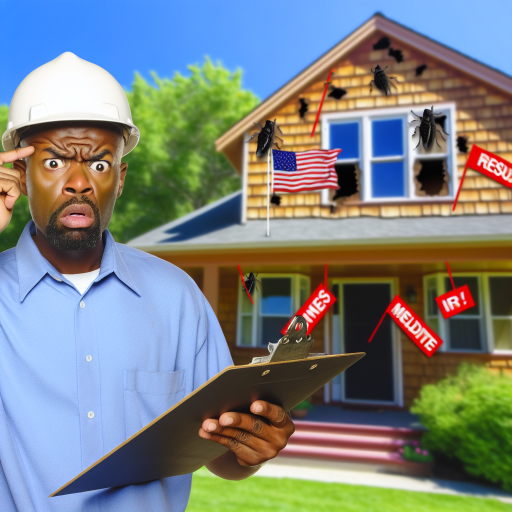Introduction
As exciting as buying a home is, understanding the hidden costs of homeownership is crucial.
It marks a new chapter filled with dreams and possibilities.
However, along with that excitement comes significant responsibilities.
Homeownership extends beyond simply paying the mortgage each month.
It encompasses various costs that homeowners must navigate successfully.
Many first-time buyers often see homeownership as a straightforward investment.
They focus on the purchase price, the loan terms, and immediate expenses.
Unfortunately, this perspective can lead to overlooking crucial costs.
Understanding these hidden expenses is vital for financial stability and long-term happiness in your new home.
Proper financial planning requires awareness of ongoing and unexpected costs.
Many new homeowners underestimate maintenance expenses.
Regular upkeep, repairs, and unforeseen emergencies exponentially add to ownership costs.
For instance, an aging roof or faulty plumbing can lead to significant outlays.
Planning for these expenses ensures you won’t face financial strain down the line.
Property taxes can catch buyers off guard, too.
These taxes vary by location and can increase over time.
Knowing your area’s tax rates helps you budget accurately.
Additionally, be aware of homeowners’ association (HOA) fees if you buy in a community.
These fees can be substantial, covering amenities and regulations but often are overlooked.
Insurance is another critical aspect.
While buyers usually understand basic homeowners insurance, they often neglect additional coverages.
Flood insurance, for instance, is vital in certain areas but frequently ignored.
Familiarizing yourself with your specific needs can protect you from significant losses.
Utilities also deserve consideration.
Water, electricity, gas, and garbage collection expenses can vary widely.
First-time buyers should budget for these costs to avoid surprises.
Factor in potential increases due to seasonal changes or appliance usage.
In short, understanding hidden costs is essential for successful homeownership.
By recognizing these factors, you can build a more accurate budget.
This foresight ensures that your home remains a source of happiness rather than financial stress.
Upfront Costs Beyond the Down Payment
Purchasing a home entails numerous costs beyond your initial down payment.
Many buyers only focus on the down payment and forget about important upfront costs.
Understanding these costs helps you budget effectively and avoid unpleasant surprises.
Here, we will explore significant upfront expenses associated with buying a home.
Home Inspection Fees
A thorough home inspection is a critical step in the home buying process.
It ensures you understand what you are purchasing.
Many buyers underestimate the importance of this inspection, putting themselves at greater risk of encountering severe issues.
Importance of Thorough Inspections
- A home inspection sheds light on the property’s condition.
- It identifies structural issues and major repairs needed.
- Inspections can also reveal mold, pest, or water damage.
- Knowing these details can influence your negotiation strategy.
- It aids in peace of mind by confirming the property’s integrity.
Having an in-depth understanding of a home’s condition prevents future headaches.
Buyers can plan for necessary repairs and potential upgrades.
Furthermore, knowing what to expect helps you make informed decisions.
Average Costs and Potential Savings from Early Problem Detection
Home inspection fees can typically range between $300 and $500, depending on the property size and location.
Though this may seem like a large expense, it can save you significantly over time.
- Identifying problems early prevents costly repairs down the line.
- Issues such as faulty wiring or plumbing can lead to disaster.
- Negotiating repair costs with the seller becomes easier.
- Buyers may walk away if the inspection reveals critical issues.
- Understanding potential repairs allows for accurate budgeting.
Investing in a home inspection protects your investment.
Without one, you risk inheriting a multitude of issues that can significantly increase your financial burden.
Closing Costs
Closing costs represent another significant item to budget for when purchasing a home.
These are fees associated with the transaction that buyers often overlook.
Failing to prepare for these costs can lead to financial strain at closing time.
Breakdown of Typical Closing Fees
Closing costs usually range from 2% to 5% of the home’s purchase price.
Below are typical expenses included in these costs:
- Loan origination fees: Charges for processing your mortgage application.
- Title insurance: Protection against potential ownership issues.
- Appraisal fees: Cost for a professional assessment of the property’s value.
- Inspection fees: Often included in the closing statement.
- Prepaid taxes and insurance: Advance payments for property taxes and homeowners insurance.
- Recording fees: Fees for registering the property deed with local authorities.
- Attorney fees: If applicable, fees for legal services during the closing process.
Being aware of these fees gives you a more realistic picture of your financial commitments.
How to Budget for These Expenses
Considering the often-overlooked closing costs is essential for effective budgeting.
Here are practical steps to help you prepare for these expenses:
- Estimate total closing costs: Research your local market to gauge costs.
- Get a loan estimate: Lenders provide this document, detailing projected fees.
- Explore seller concessions: Negotiate with the seller to cover some closing costs.
- Consider a no-closing-cost mortgage: While rates may be higher, this option can ease immediate financial burdens.
- Set aside funds: Start saving early to cover these expenses comfortably.
- Utilize a closing cost calculator: Many online resources can help you calculate potential fees.
By understanding and preparing for closing costs, you can mitigate the financial shock at the closing table.
You’ll feel more confident in your budget and avoid struggles during the transaction process.
Being thorough in your preparations for both home inspection fees and closing costs is vital when buying a home.
It ensures you handle the financial aspects of homeownership smoothly.
These upfront costs play an integral role in sustaining your financial health, enabling you to enjoy your new home without unexpected burdens.
Recurring Costs That Add Up
Owning a home is often seen as a dream come true.
However, many buyers overlook recurring costs that can significantly impact their budgets.
Understanding these expenses helps potential homeowners prepare financially.
This section will discuss two major recurring costs: property taxes and homeowner’s insurance.
Property Taxes
Property taxes are one of the most substantial ongoing expenses for homeowners.
These taxes vary greatly depending on the property’s location.
Buyers should consider this before closing the deal.
Variances by Location
Property tax rates differ across states and even within counties.
Local governments assess property taxes based on various factors.
- State Regulations: Each state sets its own tax structure.
Rates can vary considerably from low to high. - County Funding Needs: Counties assess taxes based on their budget needs for services like education and infrastructure.
- Property Value: Higher property values generally lead to higher taxes.
Assess your home’s market value when estimating taxes. - Exemptions: Some areas offer exemptions for seniors, veterans, or first-time homebuyers.
Check for eligibility to save money.
Research your specific area to understand local tax rates.
An informed buyer can better plan their finances and avoid surprises after moving in.
How to Estimate Property Taxes
Estimating property taxes can help buyers budget effectively.
Start by using the following steps:
- Check Local Tax Rates: Visit your local government website to find current rates.
These rates will give you a baseline for calculations. - Estimate Property Value: Use recent sales data to estimate your property’s value.
You can find this information online or obtain it from a real estate agent. - Calculate Taxes: Multiply your estimated property value by the local tax rate.
This will give you an idea of your annual property tax obligation.
Being proactive helps buyers avoid financial strain long after moving in.
Regularly review your property’s assessed value and local tax changes to stay informed.
Homeowner’s Insurance
Homeowner’s insurance protects buyers from unforeseen events.
It covers damages and liabilities related to your home.
However, navigating its costs can feel daunting.
Importance of Adequate Coverage
Having adequate homeowner’s insurance is crucial.
Many buyers underestimate the importance of sufficient coverage.
- Protection Against Loss: Insurance protects your investment from fire, theft, or natural disasters.
- Liability Coverage: This protects homeowners from claims by others for injury or property damage.
It is vital for homeowners who host gatherings. - Mortgage Requirements: Most lenders require insurance to protect their investment.
Inadequate coverage can jeopardize your mortgage.
Understanding the types of coverage available is essential.
Buyers should carefully review policy details to ensure comprehensive protection.
Factors Affecting Premiums and How to Save
Insurance premiums can vary widely.
Buyers should consider several factors that influence these costs.
- Location: Homes in areas prone to natural disasters typically have higher premiums.
Consider this while house hunting. - Home Characteristics: The age and condition of your home affect premiums.
Newer homes often require less costly coverage. - Credit Score: Insurers often use credit scores to determine rates.
Maintaining good credit can help lower your premiums. - Deductibles: Choosing a higher deductible may lower your premium, but it increases your out-of-pocket expense during a claim.
Homeowners can reduce costs by implementing various strategies:
- Shop Around: Obtain quotes from multiple insurers.
Comparing offers ensures you get the best deal. - Bundle Policies: Consider bundling homeowners insurance with auto insurance.
Many companies offer discounts for multi-policy holders. - Improve Home Safety: Installing security systems or smoke detectors can lower premiums.
Insurance companies reward homeowners who take preventative measures. - Take Advantage of Discounts: Always ask your insurer about available discounts.
These can lead to significant savings.
Understanding homeowner’s insurance is vital for effective budgeting.
Homeowners should stay informed and adjust their coverage as needed.
In essence, navigating the hidden costs of homeownership requires diligence and research.
Property taxes and homeowner’s insurance are recurring costs that every buyer should take seriously.
Being prepared helps achieve greater financial stability and peace of mind.
Read: How Low-Interest Rates Are Impacting the Way Americans Buy Homes in 2024
Maintenance and Rrepairs Expenses
Routine maintenance costs
Homeownership brings responsibilities, particularly regarding maintenance.
Many buyers overlook these routine costs.
Understanding them helps prevent budget surprises.
Homeowners should plan for regular upkeep to keep the property in good condition.
This expense often covers various tasks associated with maintaining the property.
General upkeep (lawn care, gutter cleaning, etc.)
Keeping a home maintained includes numerous activities.
Lawn care is essential for aesthetic appeal.
This may involve mowing, watering, and fertilizing.
A beautiful lawn creates a welcoming environment.
Additionally, gutter cleaning is vital.
Clogged gutters can cause water damage.
Regular cleaning prevents overflow and protects your foundation.
You may need to clean gutters at least twice a year.
Other aspects of general upkeep may include:
- Pressure washing exterior surfaces
- Trimming trees and shrubs
- Maintaining outdoor lighting fixtures
- Checking windows and doors for drafts
Basically, routine maintenance requires dedication and resources.
Recommended annual budget for maintenance
Setting a budget for maintenance is crucial for homeowners.
Experts suggest allocating 1% to 3% of your home’s value annually.
This budget should cover both routine and unexpected maintenance.
For instance, if your home is worth $300,000, set aside $3,000 to $9,000 yearly.
Here’s a breakdown of potential annual maintenance costs:
- Lawn care: $500
- Gutter cleaning: $200
- Pressure washing: $300
- HVAC servicing: $150
- Miscellaneous repairs: $300
Regularly reassessing your budget ensures it meets your home’s changing needs.
Adjust the budget based on changing conditions or personal experiences.
Unexpected repairs
Despite careful planning, unexpected repairs often arise.
Many homeowners encounter unforeseen issues.
These surprises can disrupt budgets and create stress.
Being prepared for unexpected repairs is crucial for financial health.
Common issues that arise with older homes
Older homes frequently present unique challenges.
Homebuyers might not be aware of these potential problems:
- Roof leaks
- HVAC system malfunctions
- Plumbing issues, such as leaks or clogs
- Electrical problems, like outdated wiring
- Mold growth due to humidity
Each of these issues can require significant investment.
Homeowners often pay thousands for repairs.
An inspection before buying a home may help identify major problems.
However, some issues remain hidden until after the purchase.
Setting up an emergency fund for repairs
Creating an emergency fund is essential for homeowners.
This fund should cover unexpected repairs and emergencies.
Aim to save at least 1% to 3% of your home’s value.
This savings will give you peace of mind and financial flexibility.
Here’s how to build your emergency fund:
- Open a dedicated savings account
- Contribute a set amount each month
- Include any unspent maintenance budget in the fund
- Use windfalls, like tax refunds, to boost the fund
By building a robust emergency fund, you can tackle repairs without financial strain.
This proactive approach allows you to maintain your home efficiently.
Homeownership indeed comes with hidden costs.
Recognizing the significance of maintenance and repair expenses is vital.
Responsible homeowners plan for both routine and unexpected expenses.
This planning can safeguard your investment and reduce stress over time.
Read: Expert Home Buying Tips: How to Secure Your Dream Home

Utilities and Homeownership
Utility Bills
Utility bills represent a significant expense in homeownership.
Many buyers overlook these costs during the home-buying process.
Understanding the average utility expenses can help homeowners plan accordingly.
Key utilities typically include electricity, water, and gas.
Additionally, homeowners often pay for internet and garbage collection services.
Let’s dive deeper into these costs.
Average Costs for Electricity, Water, Gas, etc.
The average costs of utilities vary significantly by location, home size, and energy use.
Here’s a breakdown of typical monthly utility bills for homeowners:
- Electricity: Homeowners typically pay between $100 and $200 per month.
- Water: Expect to pay around $40 to $70 monthly, depending on consumption.
- Gas: Gas bills usually range from $50 to $150 a month, based on usage.
- Internet: High-speed internet costs about $60 to $100 per month.
- Garbage collection: This often costs $20 to $50 monthly.
Overall, homeowners can anticipate a total monthly bill ranging from $300 to $600.
Remember, these costs can fluctuate with seasons and usage patterns.
Tips for Energy Efficiency and Lowering Utility Expenses
Lowering utility expenses is crucial for financial stability.
Here are some essential tips for homeowners:
- Invest in energy-efficient appliances: Energy Star-rated appliances consume less energy, leading to significant savings over time.
- Seal windows and doors: Proper sealing prevents air leaks, improving heating and cooling efficiency.
- Use programmable thermostats: These devices optimize heating and cooling when you’re home and away.
- Switch to LED lighting: LED bulbs use less energy and last significantly longer than traditional bulbs.
- Install low-flow fixtures: Low-flow faucets and showerheads reduce water consumption without sacrificing performance.
- Consider renewable energy sources: Solar panels can dramatically reduce electricity costs over time.
Implementing these tips can lead to substantial savings and contribute to a more sustainable lifestyle.
Home Warranties
Home warranties are often considered a safety net for homeowners.
These contracts provide protection for various home systems and appliances.
However, many buyers might overlook the importance and details of home warranties.
What They Cover and Their Costs
Home warranties typically cover major home systems and appliances.
Common coverage includes:
- Heating and cooling systems: Coverage for HVAC systems helps pay for repairs or replacements.
- Water heaters: Home warranties often cover unexpected breakdowns.
- Electrical systems: Coverage for electrical repairs can save homeowners from costly fixes.
- Plumbing systems: Plumbing issues can be expensive; warranties typically cover these costs.
- Major appliances: Coverage often extends to refrigerators, ovens, and dishwashers.
The cost of home warranties typically ranges from $300 to $600 per year.
However, these costs can vary based on coverage levels and additional options selected.
Evaluating the Need for a Home Warranty
Choosing whether to invest in a home warranty requires careful consideration.
Here are some factors to weigh:
- Age of appliances: Older appliances and systems may be more prone to breakdowns, making a warranty worthwhile.
- Budget for repairs: Consider your financial ability to pay for unexpected repairs without a warranty.
- Home inspection results: An inspection can reveal potential issues, guiding your decision regarding coverage.
- DIY skills: If you possess handyman skills, you may not need a warranty for minor repairs.
- Type of home: Older homes may benefit more from the coverage offered by warranties.
Ultimately, considering these factors will help homeowners make an informed decision about purchasing a home warranty.
Whether you choose to invest in one or not, understanding your home’s needs is essential.
In fact, navigating the hidden costs of homeownership requires diligence and planning.
Utility expenses and the decision to invest in a home warranty are critical components.
By understanding average utility costs and implementing energy-efficient practices, homeowners can better manage their monthly bills.
Additionally, evaluating home warranties can provide peace of mind regarding repairs.
Being proactive in these areas allows buyers to enjoy their homes without overwhelming financial stress.
Read: Real Estate Long Game: Value Appreciation Tips
Association Fees and Community Expenses
Homeowners Association (HOA) fees
For many prospective homebuyers, understanding the role of Homeowners Associations (HOA) is crucial.
HOAs manage community standards and maintain shared spaces.
They typically charge fees to cover the costs associated with these responsibilities.
Reasons for HOA fees
HOA fees serve several essential purposes in a residential community:
- Maintain common areas such as parks, pools, and landscaping.
- Provide security services, including gated access and patrols.
- Ensure community standards through regulations and guidelines.
- Organize community events and activities for residents.
Understanding these reasons helps buyers appreciate the benefits of paying HOA fees.
They help maintain property values and enhance the community’s overall appeal.
What services or amenities they typically cover
HOA fees cover various services and amenities within a community.
These can include:
- Landscaping and maintenance of common areas.
- Access to community pools, gyms, and recreational facilities.
- Trash and recycling services.
- Street lighting and road maintenance.
- Insurance for shared properties and community structures.
Before purchasing a home, you should always review the community’s HOA documents.
Familiarize yourself with the fees and what they cover to avoid surprises later.
Special assessments or additional fees
While regular HOA fees cover ongoing expenses, special assessments can impose unexpected financial burdens.
These assessments are typically one-time fees charged to homeowners.
Potential for unexpected financial burdens
Special assessments usually arise from significant improvements or repairs needed in the community.
These might include:
- Major renovations of community facilities.
- Unexpected repairs resulting from natural disasters.
- Upgrades to outdated infrastructure, like plumbing and electrical systems.
- Legal expenses due to disputes or litigation.
These assessments can be costly, sometimes amounting to thousands of dollars.
Homebuyers need to be aware of this potential to avoid becoming financially strapped.
How to stay informed about community expenses
It’s essential to stay informed about any potential community expenses.
Here’s how you can do that:
- Request a copy of the HOA’s financial statements before buying a home.
- Attend HOA meetings to get firsthand updates on community issues.
- Review the budget and understand how fees are allocated.
- Ask if there are any upcoming projects or discussions about assessments.
- Connect with current homeowners to learn their experiences.
Being proactive in gathering information ensures you won’t face unexpected financial burdens after purchasing your new home.
Understanding the impact of community expenses on your budget
When evaluating the cost of homeownership, consider HOA fees and community expenses as part of your overall budget.
These costs can significantly impact your monthly financial obligations.
Calculating your total monthly housing costs
When creating your budget, include the following components:
- Mortgage payment (principal and interest).
- Property taxes, which can fluctuate based on local assessments.
- Homeowners insurance for protecting your property.
- HOA fees to maintain community standards.
- Utilities, including water, sewer, gas, and electricity.
Analyzing these factors gives you a clearer picture of your financial commitments.
Always plan for unexpected repairs or emergency funds.
The influence of location on HOA fees
HOA fees vary depending on the community and location.
High-demand areas often have higher fees due to:
- The cost of living in particular regions.
- Access to premium amenities and services.
- Increased demand for well-maintained properties.
- Community engagement and governance expenses.
Research different neighborhoods to understand the variance in HOA fees.
Evaluate whether the services provided justify the costs.
Negotiating HOA fees or assessments
Once you understand the landscape of HOA fees, consider the potential for negotiation.
While generally fixed, some aspects might be flexible:
- Discussing special assessments during property negotiations.
- Seeking a reduction if you plan to contribute to community projects.
- Proposing different service models that could lower costs.
Engaging with the HOA board and community members can yield results.
This approach not only helps you financially but also fosters stronger community relations.
Homeownership involves more than just securing a mortgage.
It includes understanding and planning for HOA fees and community expenses.
Knowledge of potential costs will empower you as a buyer.
You’ll be better prepared to make informed decisions about your home purchase.
Conduct thorough research and stay proactive in your financial planning.
By doing so, you can successfully navigate the hidden costs of homeownership and ensure a smooth transition into your new community.
Read: Wise Buys: Homes with Appreciation Potential
Long-term Financial Consideration
Resale value and renovation costs
When purchasing a home, many buyers focus solely on the upfront costs.
However, long-term financial considerations deserve equal attention.
One of these is the resale value of the property.
A strategic approach to renovations can enhance this value.
Buyers should consider multiple aspects related to home improvements.
Importance of strategic renovations
Strategic renovations can lead to significant profit margins when selling.
Here are key reasons why you should prioritize thoughtful improvements:
- Increased Home Value: Not all renovations have the same impact.
Focus on upgrades that appeal to potential buyers. - Curb Appeal: First impressions matter.
Landscaping, exterior painting, or new siding can attract more buyers. - Functional Improvements: Upgrades that enhance functionality, like kitchen remodels or bathroom upgrades, are often key selling points.
- Energy Efficiency: Eco-friendly renovations are increasingly attractive.
Solar panels or updated HVAC systems can add value.
Evaluating the return on investment for home improvements
Determining the right improvements requires a clear understanding of ROI.
Homebuyers should evaluate potential projects on various fronts:
- Cost vs. Value Reports: Utilize annual reports that outline average costs and potential resale differences in your area.
- Local Market Trends: Assess your local market.
What features do homes sell quickly? Invest accordingly. - Functional Versus Aesthetic: Focus on necessary improvements first.
A functional home takes precedence over purely aesthetic changes. - Consulting Professionals: Real estate agents and home appraisers can offer insight into what renovations pay off best.
Market fluctuations
The real estate market is not static.
Buyers should prepare for potential fluctuations that can affect home value.
Understanding these market trends becomes essential for sound investments.
Understanding the impact of real estate trends
Be aware of local and national real estate trends.
These fluctuations can influence property values, buyer interest, and overall market health:
- Seasonality: The housing market can change with seasons.
Spring and summer usually bring more listings and buyers. - Economic Indicators: Check indicators like interest rates, employment rates, and inflation.
They can provide context for market shifts. - Neighborhood Developments: New schools, parks, or shopping centers can increase property desirability.
Stay informed about local developments. - Comparative Market Analysis: Regularly monitoring nearby property values helps gauge your home’s current standing.
Planning for the future and potential market changes
Having a long-term strategy is vital for navigating any market fluctuations.
Homebuyers should consider the following strategies:
- Mortgage Terms: Lock in a favorable rate for a stable monthly payment.
Avoid adjustable-rate mortgages if you prefer predictability. - Flexibility in Budgeting: Prepare for unexpected costs.
Maintaining a financial cushion can alleviate stress during market downturns. - Diversifying Investments: Homeownership should be part of a broader financial plan.
Balance your investments across various assets. - Long-Term versus Short-Term: Be clear about your intentions.
Are you planning to stay long-term, or do you anticipate moving soon?
Essentially, navigating the hidden costs of homeownership involves more than just purchasing a house.
Resale value and renovation costs require careful strategic thinking.
Homebuyers need to evaluate the return on improvement investments.
Understanding market fluctuations is equally important.
Buyers should continually analyze real estate trends and prepare for potential changes.
Long-term financial considerations significantly impact homeownership.
Paying attention to these factors can safeguard your investment and enhance your financial future.
By incorporating these insights into your home-buying journey, you’ll position yourself for success.
Make informed decisions based on thorough research.
Prioritize renovations that will yield long-term benefits.
Always stay updated on market conditions to better navigate your home investment.
Strategies For Managing Hidden Costs
Creating a Comprehensive Budget
Building a solid budget is the first step in managing hidden homeownership costs.
A well-structured budget helps you anticipate and plan for expenses.
By listing all potential costs, you prepare yourself for financial surprises.
Here are some steps to create a comprehensive budget:
Listing all known and potential expenses
- Start with your mortgage payment.
Factor in principal and interest. - Include property taxes, which vary by location.
- Don’t forget homeowner’s insurance; this is crucial for protection.
- Add maintenance and repair costs.
Home systems will need regular upkeep. - Consider utility costs such as electricity, water, and gas.
- Account for homeowners’ association (HOA) fees, if applicable.
- Plan for landscaping expenses and seasonal upkeep.
- Include unexpected costs such as emergency repairs or replacements.
Importance of monitoring and adjusting the budget
- Regularly review the budget to ensure it reflects current expenses.
- Adjust for changes in lifestyle or income effectively.
- Track your spending meticulously to identify patterns.
- Re-evaluate your budget during significant life events, like marriage or childbirth.
- Use budgeting tools or apps to simplify tracking.
- Identify areas where you can cut back without sacrificing comfort.
- Set aside an emergency fund for unexpected home repairs.
Seeking Professional Advice
Engaging professionals can help you manage the hidden costs of homeownership better.
Financial advisors and real estate experts can offer valuable insights.
Their knowledge can save you money and time.
Here are key points regarding professional assistance:
The role of financial advisors and real estate professionals
- Financial advisors can help you analyze the cost-benefit ratio of homeownership.
- They guide you in making informed decisions about your budget.
- Real estate professionals offer insights into market trends.
- They can help you understand the full scope of ownership costs.
- Professionals assist in deciding what properties to consider based on your budget.
Value of detailed cost estimates and insights from experienced homeowners
- Consulting seasoned homeowners can provide anecdotal advice on hidden costs.
- Learn about their experiences with repairs and maintenance.
- Gather information on what costs they underestimated.
- Ask about factors they wish they considered before purchasing.
- Use their insights to adjust your expectations and budget.
- Consider joining local homeowner groups or forums for ongoing support.
Comprehensive budgeting and professional guidance are essential.
They empower you to navigate the challenges of homeownership.
Anticipating hidden costs becomes manageable.
Start today by creating your budget while seeking professional advice.
In a nutshell, tackling hidden costs requires proactive strategies.
Creating a comprehensive budget helps prepare for known and unforeseen expenses.
Seek professional guidance to clarify complex financial situations.
Both strategies combined offer a balanced approach to managing homeownership efficiently.
Become diligent about monitoring your budget.
Adjust your strategies according to your financial situation.
With effort and insight, you can protect against hidden costs.
Enjoy the rewards of homeownership without financial strain.
Conclusion
Recap of the importance of being aware of hidden costs
Understanding the hidden costs of homeownership is crucial for any buyer.
Many new homeowners focus solely on the purchase price.
However, overlooking additional expenses can lead to financial strain.
Repairs, maintenance, and taxes often surprise first-time buyers.
By recognizing these costs early, you can budget effectively.
This awareness prevents financial surprises down the road.
Encouragement for first-time buyers to conduct thorough research
First-time buyers should invest time in research.
Familiarize yourself with potential hidden costs associated with homeownership.
Utilize resources such as online calculators, financial advisors, and real estate websites.
Talking to experienced homeowners can reveal valuable insights.
Join local homebuyer seminars or workshops to enhance your knowledge.
The more you know, the better prepared you’ll be.
Empower yourself to make informed decisions when buying a home.
Final thoughts on financial preparedness leading to successful homeownership
Financial preparedness is key to successful homeownership.
Create a comprehensive budget that includes all foreseeable costs.
Set aside funds for maintenance and unexpected repairs.
Consider home warranties for added peace of mind.
Being proactive about your financial health will serve you well.
Ultimately, a well-planned approach can lead to a rewarding ownership experience.
Enjoy the journey of homeownership with confidence and clarity.




